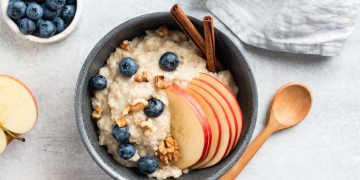Ultimate Guide to Anti-Inflammatory Diet: How to Reduce Inflammation Naturally and Improve Health
Chronic inflammation is a common underlying factor in many diseases such as heart disease, cancer, and diabetes. Inflammation is the body’s natural response to injury or infection, but when it becomes chronic, it can lead to serious health problems. Fortunately, there are ways to reduce inflammation naturally through diet and lifestyle changes.
What is Inflammation?
Inflammation is the body’s way of protecting itself from harmful stimuli, such as pathogens, damaged cells, or irritants. It is a normal part of the body’s immune response, but when it becomes chronic, it can lead to a variety of health problems. Chronic inflammation has been linked to conditions such as arthritis, asthma, heart disease, and even cancer.
What Causes Inflammation?
There are many factors that can contribute to inflammation, including diet, stress, lack of exercise, and environmental toxins. Certain foods, such as processed sugars, trans fats, and refined carbohydrates, can promote inflammation in the body. Stress and lack of sleep can also trigger inflammation, as can exposure to pollutants and other toxins.
The Anti-Inflammatory Diet
The anti-inflammatory diet is a way of eating that focuses on reducing inflammation in the body. The diet is rich in whole, unprocessed foods that are high in antioxidants and other anti-inflammatory compounds. Foods such as fruits, vegetables, nuts, seeds, and fatty fish like salmon and mackerel are all part of an anti-inflammatory diet.
Foods to Include in an Anti-Inflammatory Diet
- Fruits: Berries, oranges, apples, and bananas
- Vegetables: Spinach, kale, broccoli, and sweet potatoes
- Whole grains: Brown rice, quinoa, and oats
- Healthy fats: Avocados, olive oil, and nuts
- Protein: Fatty fish, chicken, and tofu
Foods to Avoid in an Anti-Inflammatory Diet
- Processed sugars: Candy, soda, and baked goods
- Trans fats: Margarine, fried foods, and processed snacks
- Refined carbohydrates: White bread, pasta, and rice
- Processed meats: Hot dogs, bacon, and deli meats
- Excessive alcohol: Beer, wine, and spirits
Benefits of an Anti-Inflammatory Diet
There are many benefits to following an anti-inflammatory diet, including reduced inflammation in the body, improved heart health, better blood sugar control, and weight loss. Studies have shown that people who follow an anti-inflammatory diet have lower levels of inflammatory markers in their blood, which can reduce the risk of chronic diseases.
Additional Tips for Reducing Inflammation
In addition to following an anti-inflammatory diet, there are several other ways to reduce inflammation naturally. These include regular exercise, stress management techniques such as meditation and yoga, getting enough sleep, and avoiding exposure to environmental toxins. Taking supplements such as turmeric, fish oil, and probiotics can also help reduce inflammation in the body.
Conclusion
Chronic inflammation is a common underlying factor in many diseases, but it can be managed through diet and lifestyle changes. The anti-inflammatory diet is a great way to reduce inflammation naturally and improve overall health. By including a variety of fruits, vegetables, whole grains, healthy fats, and lean proteins in your diet, you can help reduce inflammation in the body and lower your risk of chronic diseases.
Remember to also incorporate regular exercise, stress management techniques, and adequate sleep into your routine to further reduce inflammation and improve your health. By making these simple changes, you can take control of your health and reduce inflammation naturally.












































